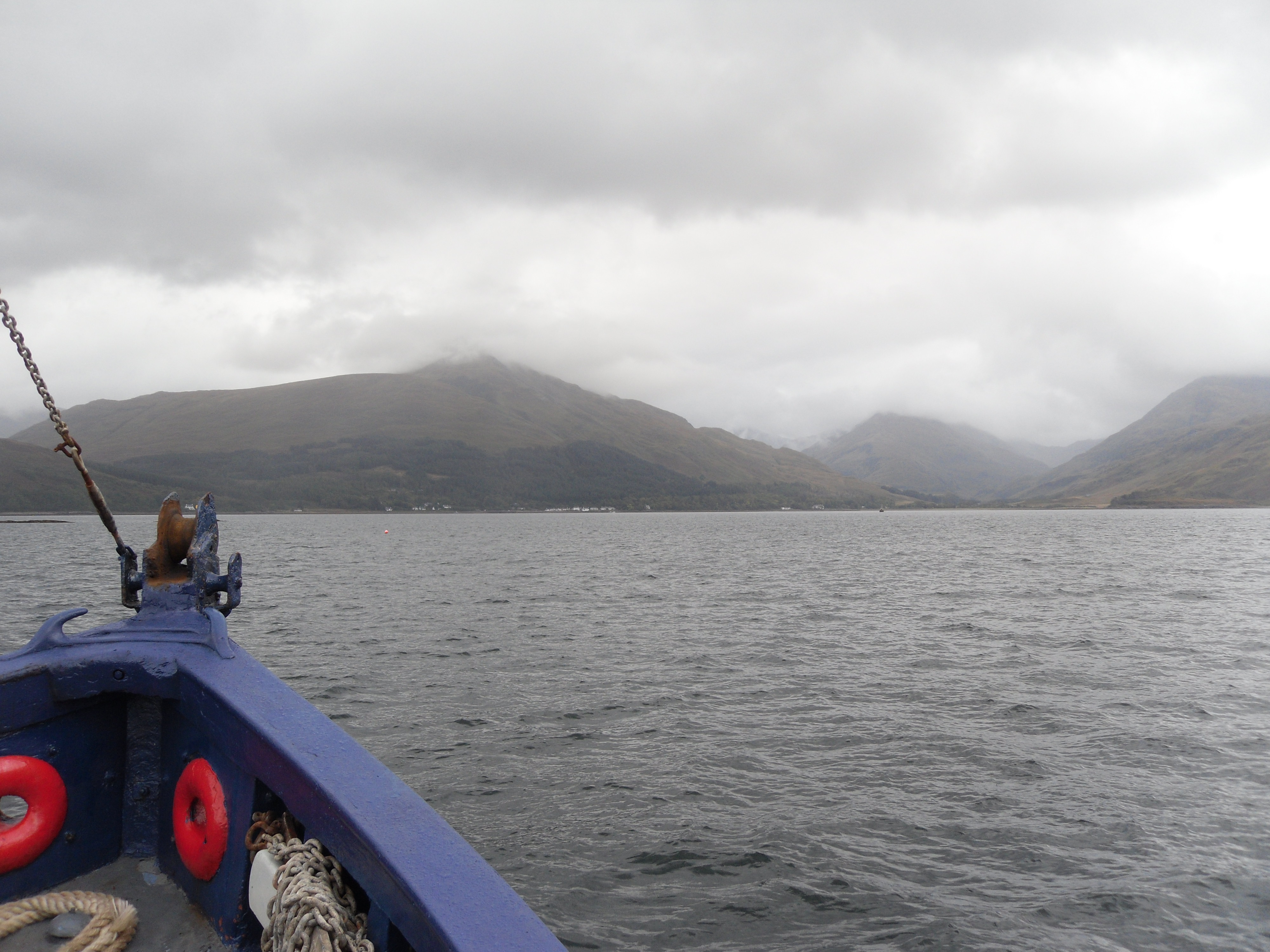
Scotland was beautiful. Stunningly, mythically beautiful.
We really went to Scotland because Niamh wanted to go to a music festival in Ullapool, in the north. Then I heard about beautiful walking from a Scot who picked me up hitching in Donegal and also thought it'd be nice to visit some of the famous distilleries. And I'd heard about the West Highlands line, that goes through the West Highlands (no-one can say it's not well named), regarded as one of the most beautiful lines in Europe.
So, it was really more or less a coincidence, that we went.
But, it was a revelation. The west coast is wild and rugged and romantic and just breathtaking. The people are lovely, gentle and friendly.
We arrived on a morning ferry from Belfast on a calm day under a bright blue sky, coming into the low, bald hills around Cairnryan, then got a bus and train into Glasgow, where we spent an evening, before getting a midday train up to Mallaig, along the West Highlands line.
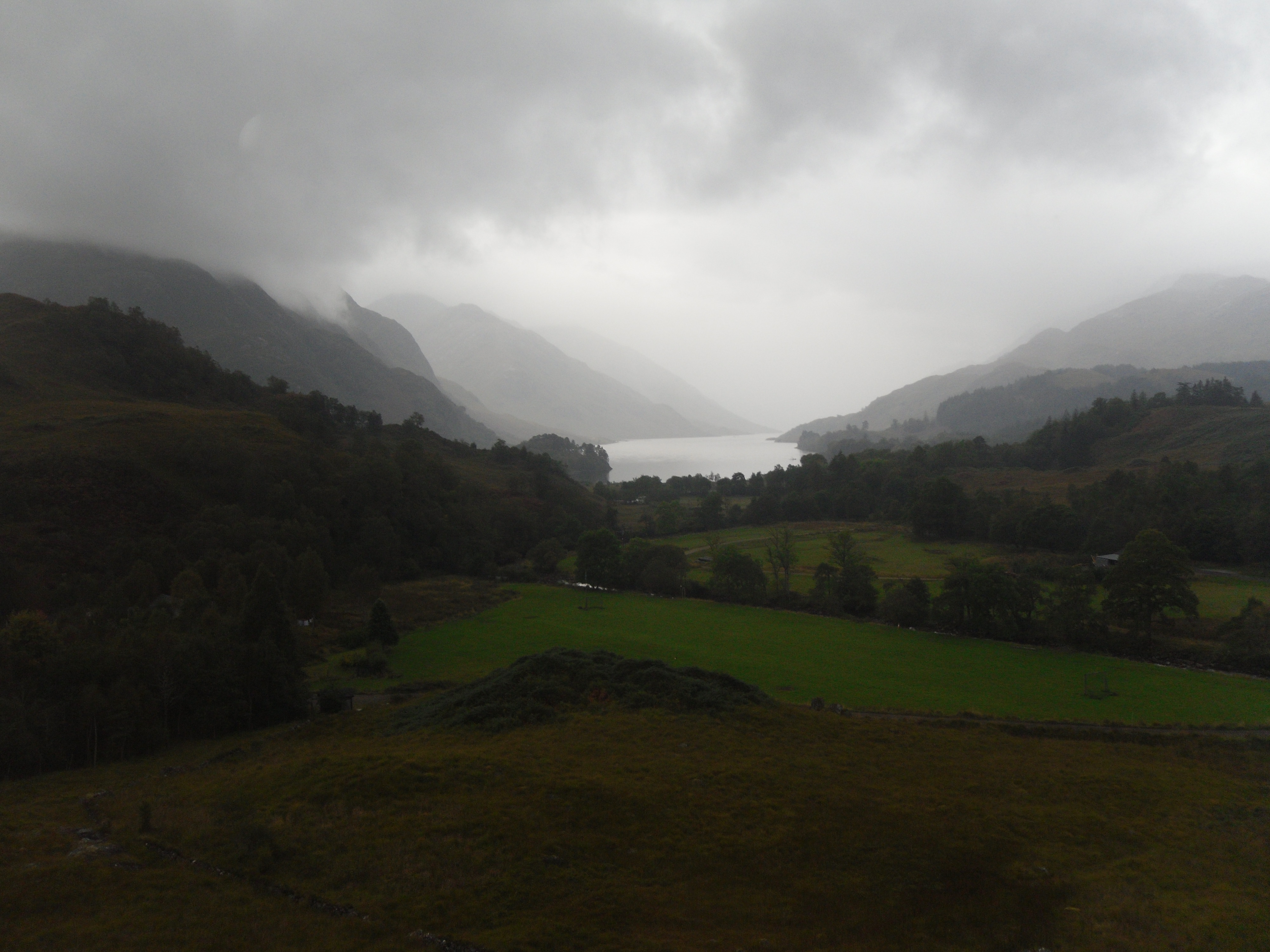
We didn't explore Glasgow much, rushing off the train to the nearest Irish pub to watch the end of the All-Ireland Gaelic Football Final (Donegal lost – boo!), have a very nice curry and get an early night's rest. But, despite its fearsome reputation, it seemed really nice – clean and tidy and prosperous.
But a little dispirited. The Independence Referendum had been held a few days before and narrowly lost (55% - 45%) and lots of people were pretty down in the dumps. Glasgow had voted clearly in favour of independence too, so perhaps that explained the mood too. By all accounts, the long lead-up to the vote had engaged people with politics in a way that hadn't been seen for a very long time and I certainly got the feeling that politics was on lots of people's minds. Every newspaper in Britain, except one, the weekly Sunday Herald (a Scottish paper) had come out against independence, there'd been a huge campaign by the political elite (all major parties except the Greens and – obviously! - the Scottish National Party (SNP) were also against independence), lots of scare stories and a slew of last-minute promises so there was a strong feeling that the final outcome reflected the scare tactics and belated promises, rather than a majority desire to stay within the United Kingdom. And, within days, the promises started to be broken, or at least bent; there was a sense of both outrage and resignation to this amongst the Yes (to independence) camp and a determination to make Westminster (the British shorthand for the London-based political elite) keep to its promises.
Interesting too, for me, was the degree to which many people explicitly said they weren't into nationalism (“that kilt-wearing bullshit” as someone described the SNP leadership!), but wanted independence so they could have a fairer, more socialist, society. Scotland pretty much has no Conservative party, never supported Thatcher or any of the other English wrecking balls that have done so much to destroy ordinary people's dignity and standard of living in Britain over the last few decades, but, being dominated by the wishes of southern English voters they've had to cop a hell of a lot of stuff they've never wanted. For many, independence was more about having a fair society and running things based on what everyone wanted than nationalism or a sense of righting historical wrongs.
So, it was a very interesting time to happen to be in Scotland. On more timeless matters, it was amazing to see – and hear – the western highlands and western isles accents, so much more Irish-sounding than the classical lowlands Scots that we generally are exposed to in 'the popular media'. In these areas too, many signs are bilingual, and there's a strong movement to bring Gallic back from its marginal status. Even with my limited Irish many of the signs were understandable; Niamh was amazed at the similarity and was even able to have rudimentary conversations with Gallic speakers.
Apart from the political and linguistic situation, western Scotland offered, as mentioned above, breathtaking rugged scenery, a sense of being out in wild, exhilarating country. The train ride took us through lovely scenery, steep hills and lochs in abundance, windswept, treeless vistas and forested glades, towards the coast and Mallaig, a small, picturesque working port based around fishing and, being the departure point for the Isle of Skye, tourism. After a night there, we got a ferry over to the Knoydart Peninsula, billed as one of the remotest places in the United Kingdom and spent a couple of lovely days enjoying the rainy romance of it all and learning about the community.
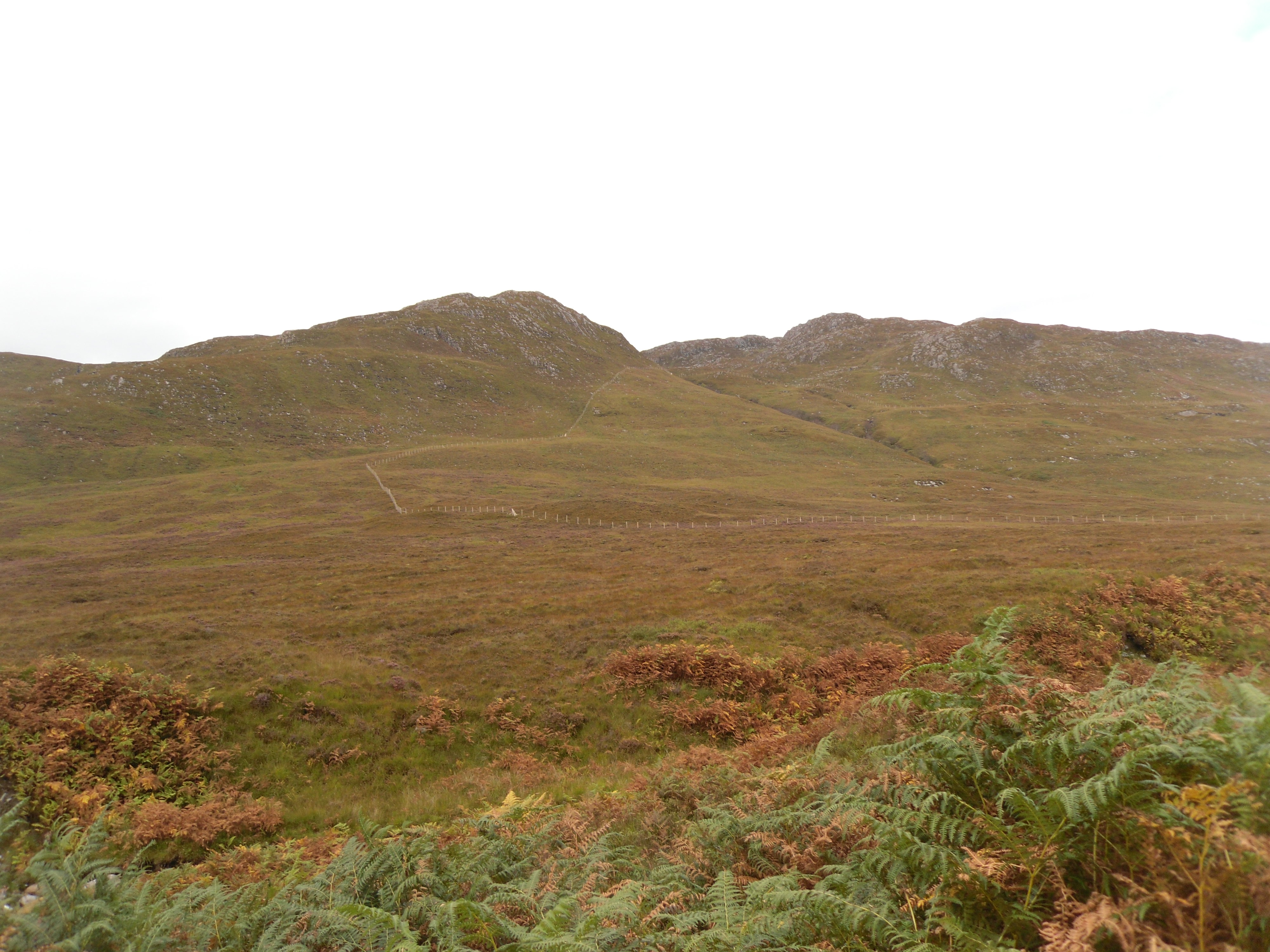
In 1997 the community bought out the estate that owned the village and local area and created a foundation to hold and administer the property. It would require a whole other blog post to discuss the absurdity of British land ownership – suffice to say it's amazingly feudal, with the majority of the Union held by the aristocracy, with Scotland having the worst of it. There are projects to map it out, that demonstrate very starkly, but a demonstration of the outrageous distribution of land is that 432 people own half the land in Scotland!. Some time ago Scottish law was changed to make it easier for communities to buy back the land they live on and Knoydart has been a particularly successful example. It was something like a traditional village and a '60s commune, with tidy streets and small businesses, but also a sense of communal activity, positivity and vibrancy, that the whole community had a stake in the place and was taking responsibility for its future.
From Knoydart we ferried, bussed and hitched across to the Isle of Skye, north a little, back onto the mainland and, via an overnight stop in a bunkhouse (which seems to be a Scottish word for a rural hostel) in Plockton, another beautiful village on a sea loch (yes, that is a phrase!) just over from Skye, we headed to Ullapool on the coast further north. The landscape changed from the steep hills and lochs of the west coast to gentler hills and more settled country as we headed east, then north. The weather had fined up somewhat from the rainy, windy time we'd been having, but was still pretty blustery; as we went to set up our tent in a campsite which had been specially designed to catch sea breezes and gales, without any protection, the wind really picked up and started taking pegs out of tents and blowing others half flat. When some driving rain came to keep the wind company we retreated to some nearby trees and watched the havoc unfold. It did die down and we did set up our tent and it did stay up, so it wasn't a disaster. The festival itself Loopaloo was ok, but not quite the chilled-out folksy event the website would suggest](http://www.loopallu.co.uk), more sort of rocky and blokey (there were almost no female performers over the whole weekend!), and holding the final festival of the season in the north of Scotland is a quirky thing to do because, despite the weather fining up and the glorious surroundings it was pretty cold most of the time!
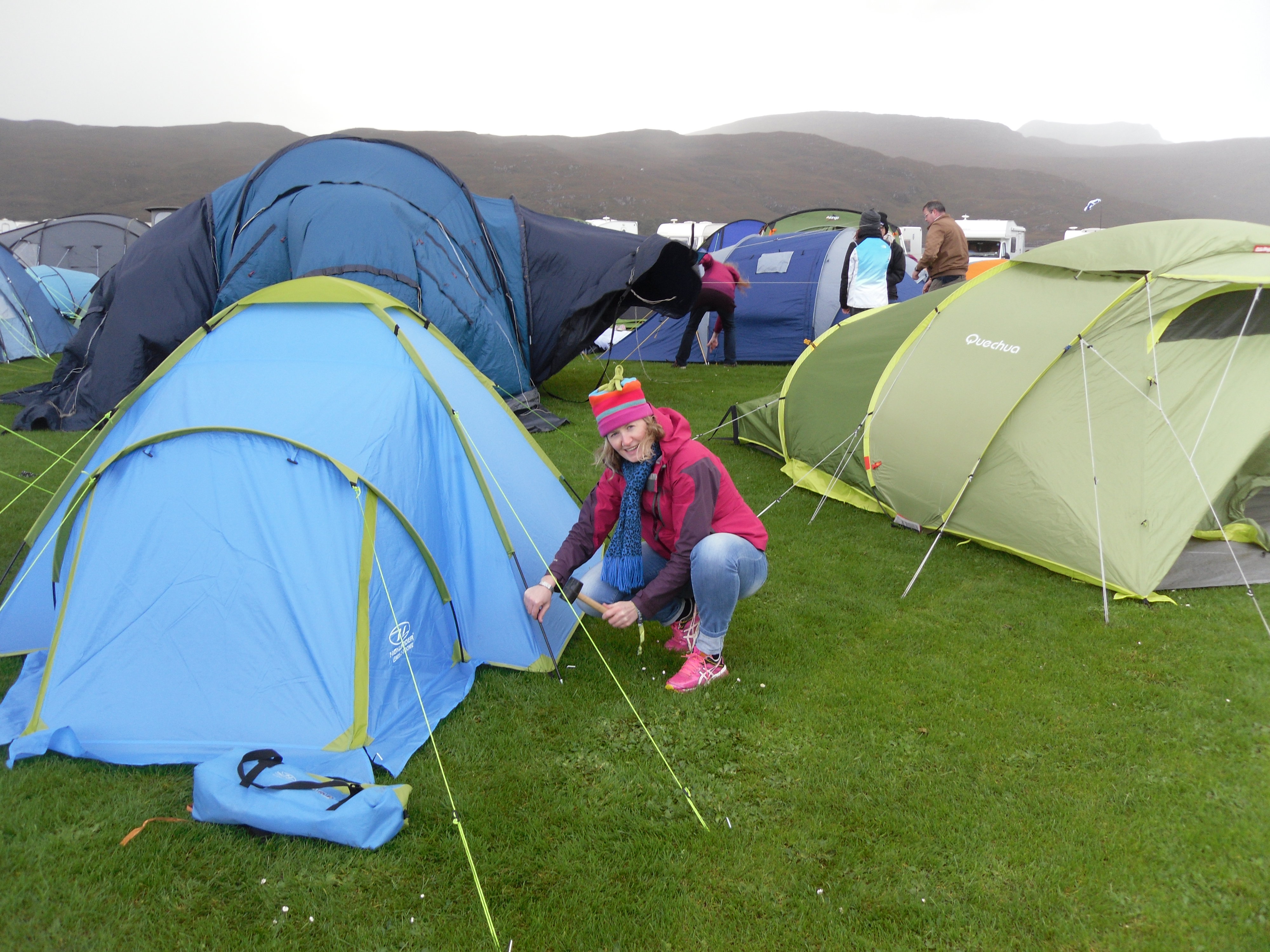
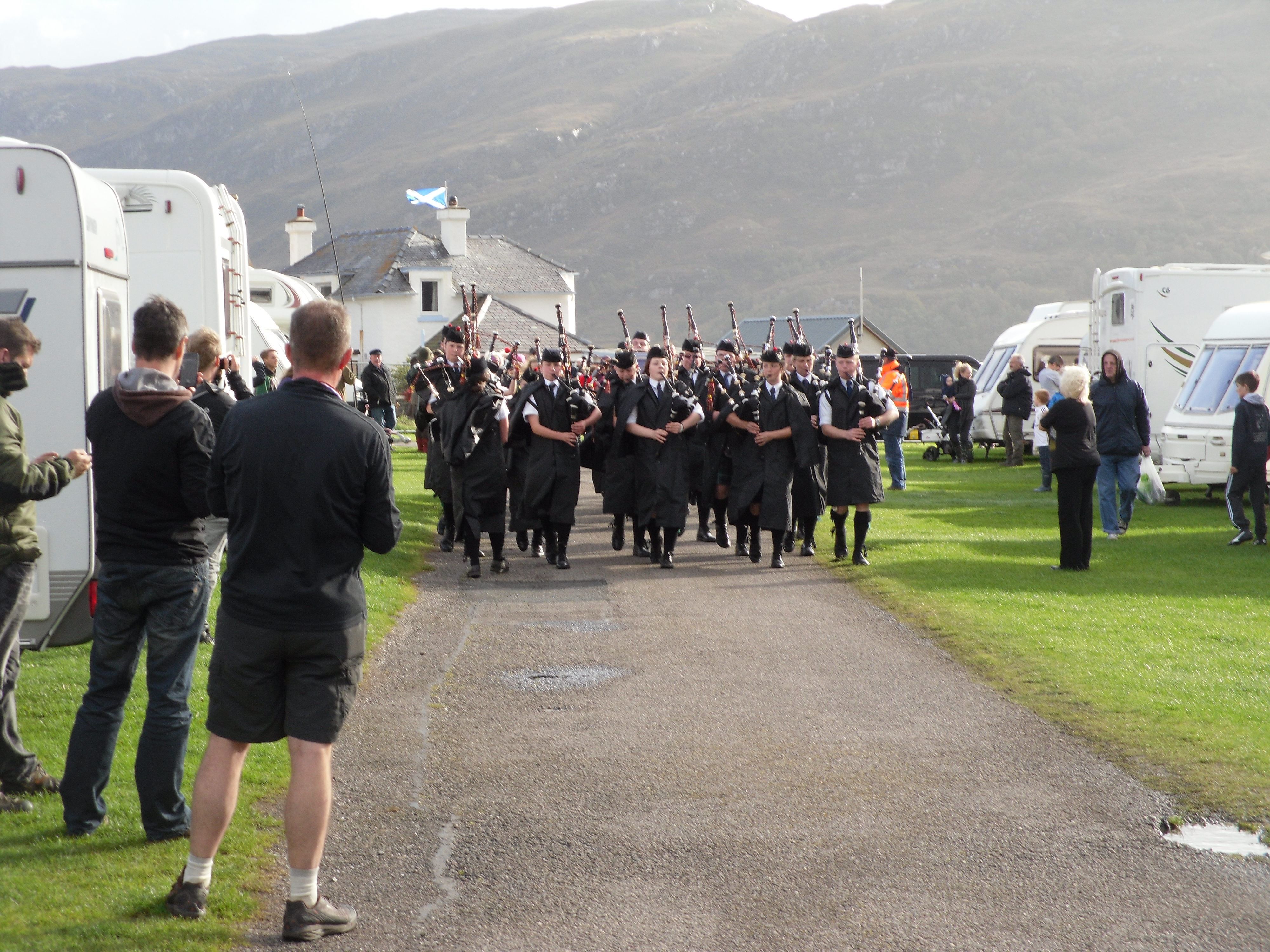
We did, however, bump into some great people, two of whom were good mates with a Darwin mate, had lived there for a few years in the early 2000s and were just generally lovely. So much so that we came back with them for a two nights and slept in their spacious mobile home, revelled in the weather which had turned gloriously clear and warm(ish) and wandered around their area, Findhorn, on the north-east coast.
Some of you may recognise the name – Findhorn community is a famous experiment in communal living, established by a group of mystic Christians in the mid-1960s and an inspiration for many of the communes that started from the 1970s onwards. It is situated rather curiously between the village of Findhorn and a large (now de-commissioned) air force base! Our newfound friends lived just down the road, but we did get on some bikes and have a look around. It was a pretty established and prosperous little place, but for some reason I didn't like the feeling of it. Not horrible, just something... maybe just too many people looking for a lifestyle to fill the empty place inside. That said, we did later get chatting to a long-term resident, who seemed sane and rounded and heard lots of good things about the set-up.
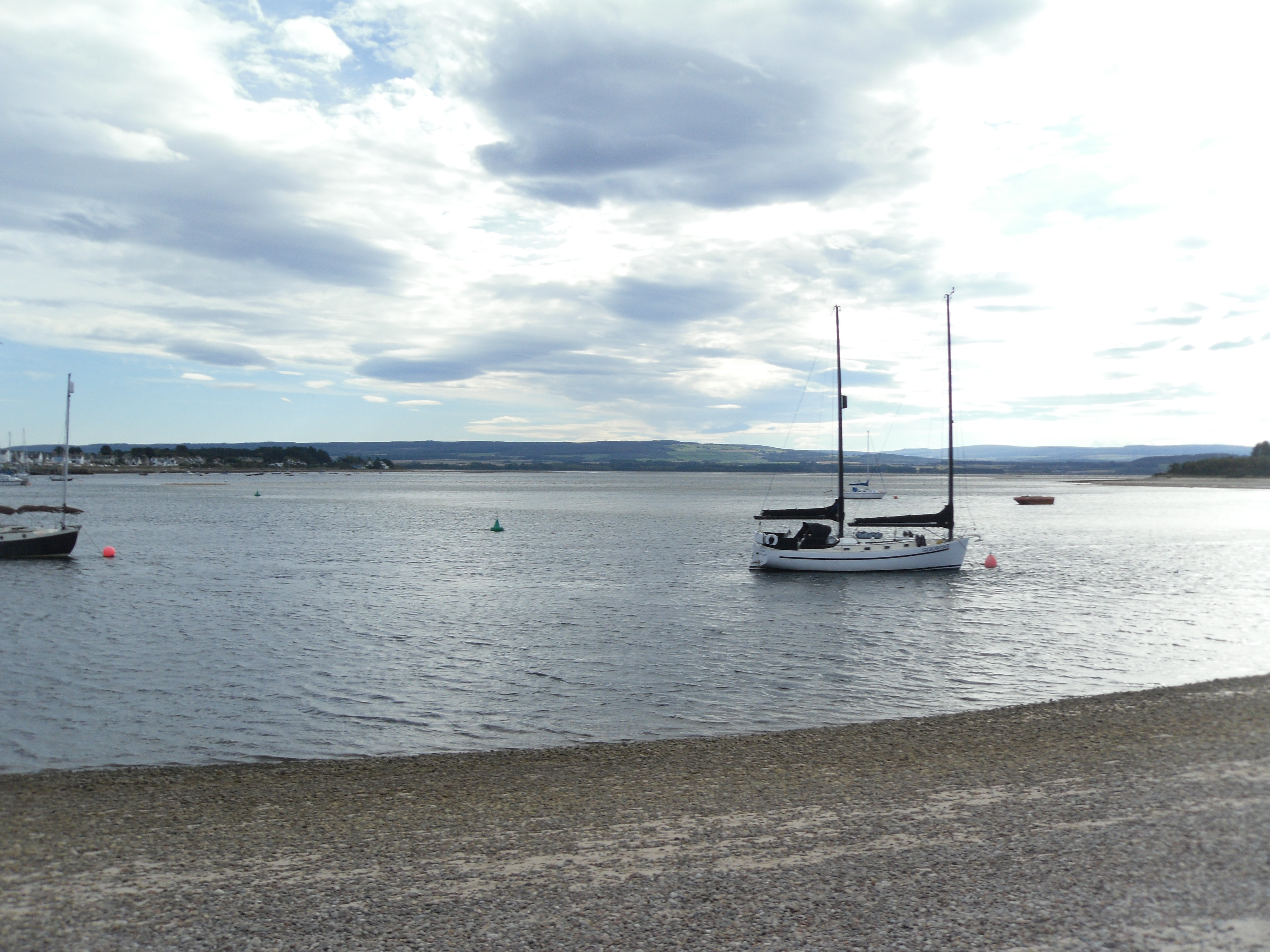
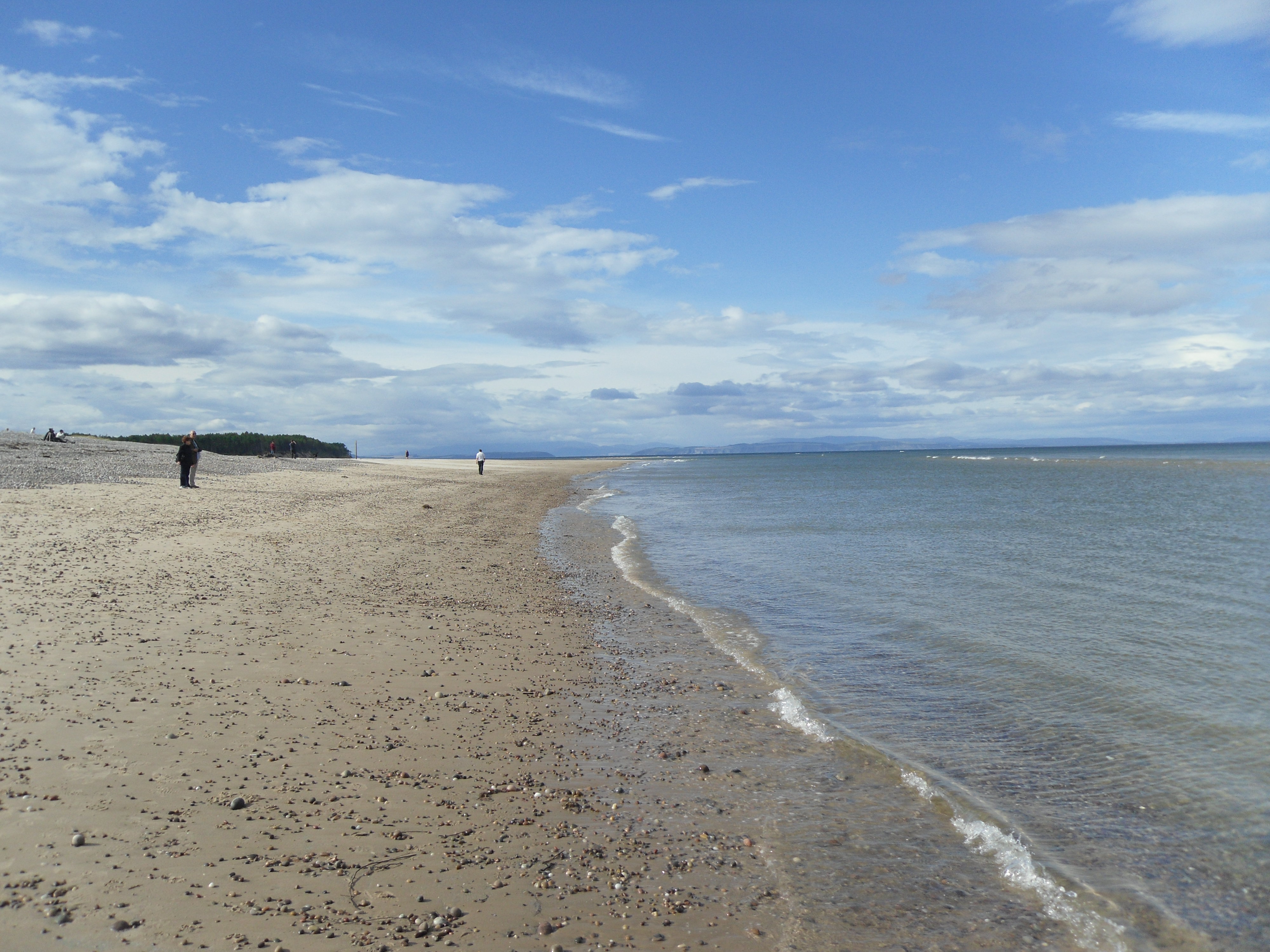
From Findhorn we got the train down to Glasgow and boarded the Caledonian Sleeper train to London. It leaves at 11.40, but you are allowed to board at the civilised time of 10.00 so you can get a decent night's sleep. It is fairly famous amongst train lovers, but I can't say I was too impressed; obviously far nicer than hitching or bussing, but overall pretty tatty and rundown, not at all the legendary train it's made out to be. Still, we did get a good sleep, got up at our leisure (you don't have to get off the train until an hour after it arrives), walked through the grey drizzle of London between our adjacent train stations and hopped on the Eurostar to Paris on another lovely, warm, blue-skied day.